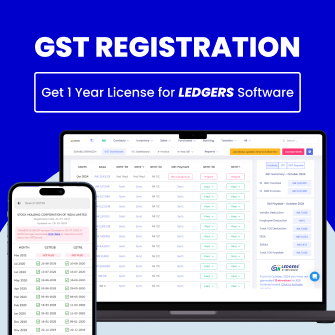Overview GST Registration online
Since its introduction on 1 July 2017, the Goods & Services Tax (GST) has been mandatory for all service providers, traders, manufacturers, and even freelancers in India. The GST system was implemented to replace Central and state-level taxes such as Service Tax, Excise Duty, CST, Entertainment Tax, Luxury Tax, and VAT, making the tax process more streamlined. The GST registration charges vary depending on the type of business and turnover.
For those taxpayers whose annual turnover is less than 1.5 crore, the GST framework provides an option for a composition scheme. This scheme allows them to undergo simplified GST procedures and pay taxes at a predetermined rate according to their turnover.
The GST mechanism operates throughout various stages of the supply chain. This includes acquiring raw materials, production, wholesale, retail, and the eventual sale to the end consumer. Notably, GST is imposed at every one of these steps. For example, when a product is produced in West Bengal and then used in Uttar Pradesh, the GST revenue generated is allocated entirely to Uttar Pradesh, emphasizing the consumption-based nature of GST.
Key Components of GST Registration
The Goods and Services Tax (GST) in India is structured around three primary components:
✓
Central Goods and Services Tax (CGST): This tax is levied by the Central Government on the supply of goods and services within a particular state. CGST applies to transactions carried out entirely within the boundaries of one state.
✓
State Goods and Services Tax (SGST): SGST is charged by the State Government on the supply of goods and services within its jurisdiction. Similar to CGST, SGST is also limited to transactions happening within a specific state.
✓
Integrated Goods and Services Tax (IGST): This tax is imposed by the Central Government on the supply of goods and services that occur between different states or between a state and a Union Territory. IGST is relevant for transactions where goods or services cross state or Union Territory boundaries.







